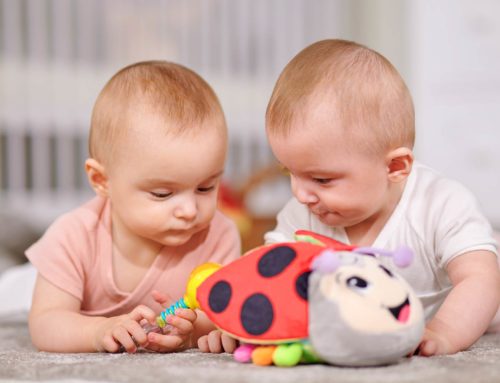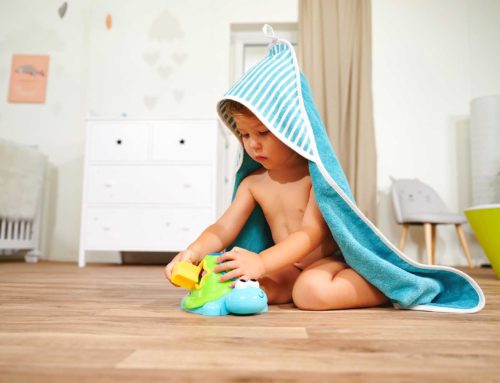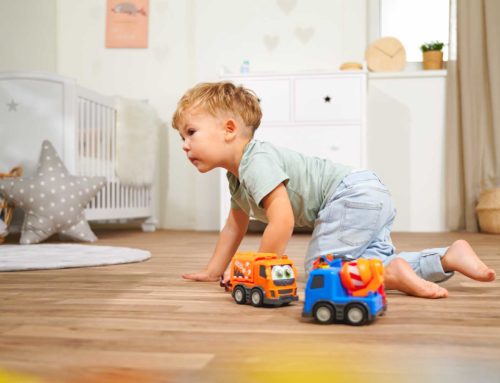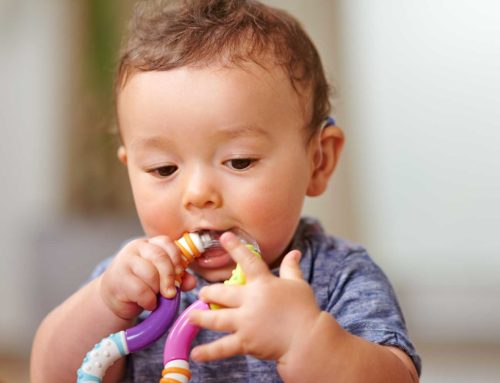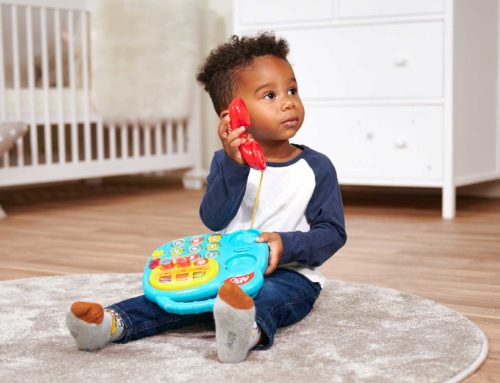First learning – development second year of life
As your baby develops into a toddler, they begin to walk and climb. At this age, play becomes a whole new experience. As their physical abilities improve, children between 12 and 24 months learn a wealth of new skills: Talking, playing, socializing, and making friends. Play is an integral part of this development.
Toddlers love to touch and explore things. There is no end to encouraging your child. Provide a safe environment so that your toddler can move freely. Hold back if you are a parent who tends to say no. Put items that could hurt your child out of reach, and you create an atmosphere with fewer confrontations. Outdoor areas also provide excellent opportunities for children to learn about their world. There are new and exciting things to experience, touch and discover. Whether in the backyard or the park, it is essential not to let your toddler out of your sight.
Toddlers are constantly moving and trying out their new skills: Walking, running, jumping, kicking, and throwing. If you have the opportunity, build daily outdoor activities into your routine to help your child develop these skills and stay active.
Toddlers want to climb. One way to encourage this skill is at your neighborhood playground or park. Playground equipment should be age-appropriate, well maintained, and have safe flooring that cushions a possible fall. Always stay close by and do not leave your child unsupervised.
Toddlers want to do what they see others do. Encourage your child to help around the house by giving him simple chores – picking up toys, folding laundry, or sweeping up.
In the second year of life, toddlers develop their imagination. He includes household objects in his play or makes up little stories about his cars, trains, or dolls.
You must not constantly interrupt or try to direct the child’s play or the story he has just made up. Sit back and observe; let your child come to you when he needs you.
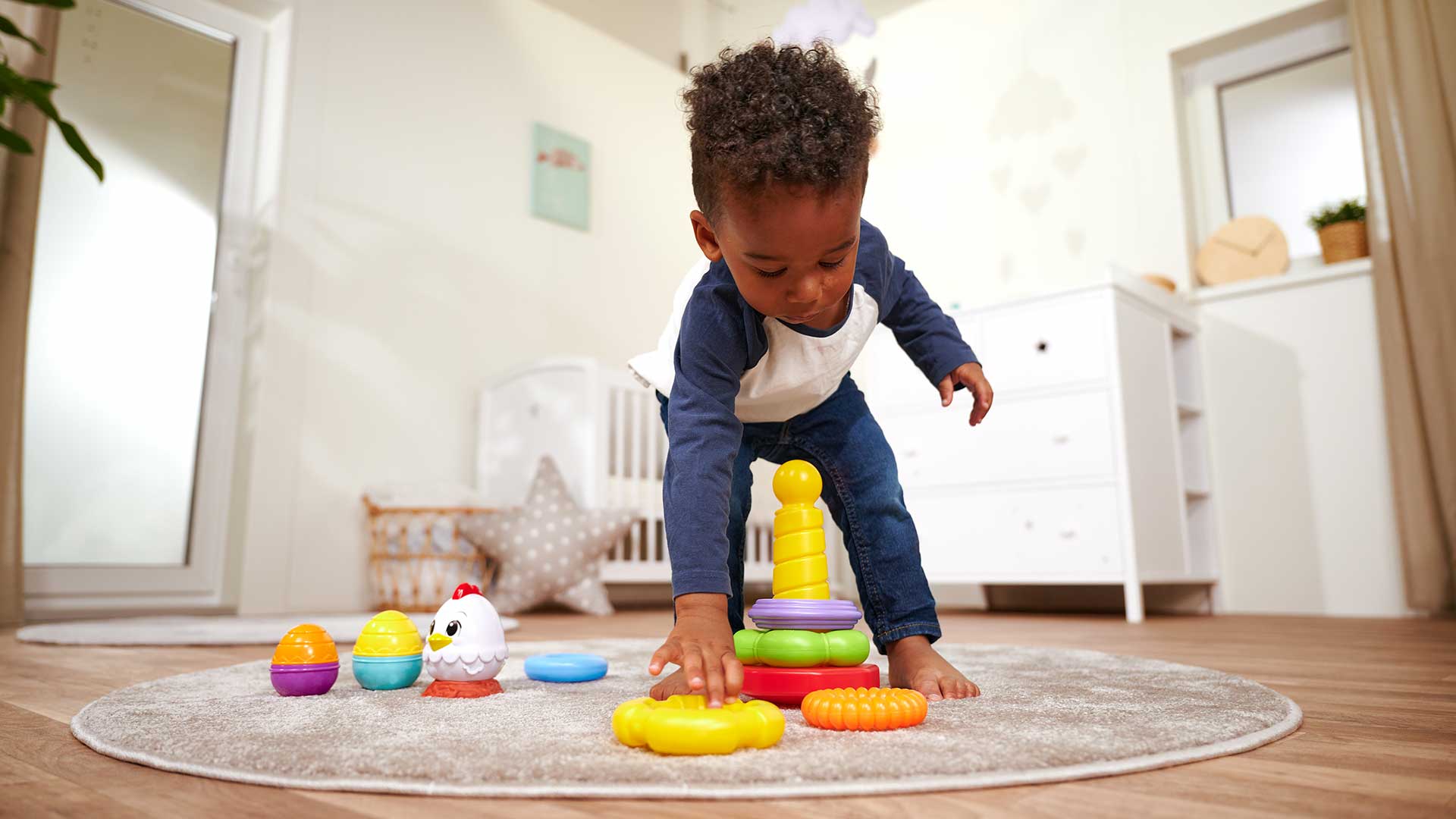
Toys for toddlers
Toys become more interesting when your toddler can manage himself better. Simple things like building blocks, floating bath toys, pots and pans, or empty plastic containers are often the best toys. Toddlers learn how things work and experiment with cause and effect, and they are also fascinated by measuring and pouring.
Toddlers do not need expensive or complicated toys, just enough to keep them curious.
- Push toy (with short pull cords),
- Safe ride-on toys that your child can set in motion with their feet,
- A doll or animals that can be dressed,
- Simple puzzle boards with multiple pieces
- Building toys for toddlers
- Large cardboard boxes with cut-out doors and windows for climbing and peeking through,
- Stacking and sorting toys,
- Boxes with shaped whole and items to put into it.
- Large softballs for kicking and throwing
- Musical toys, such as a drum,
- Hand-sized cars, trains, or trucks
- Brooms and a child-sized dustpan
- Workbenches, building blocks, play cell phones
- Sand and water toys
- Simple costumes, such as a hat or mom or dad’s shoes
- Bubbles.
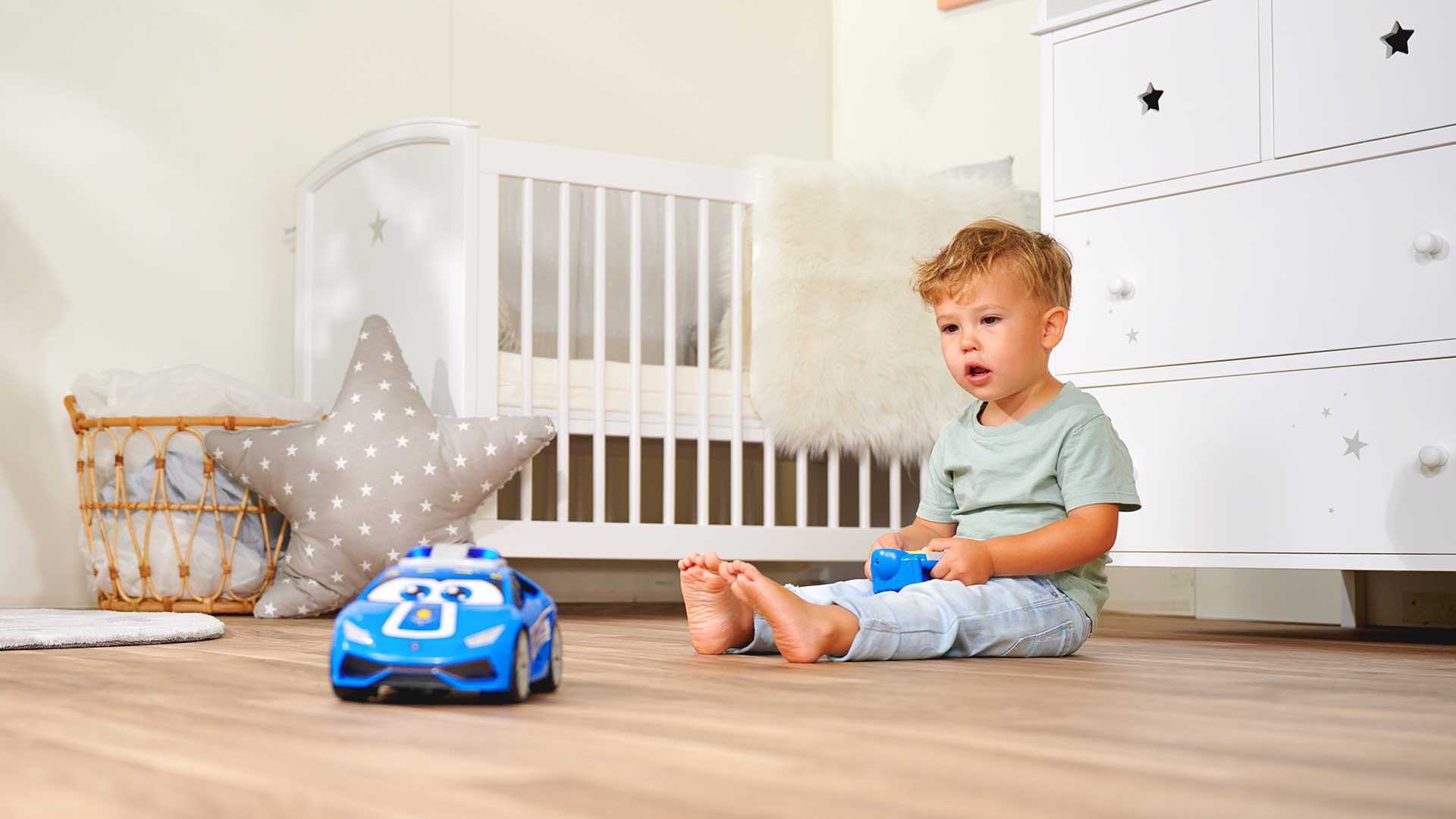

As your baby develops into a toddler, they begin to walk and climb. At this age, play becomes a whole new experience. As their physical abilities improve, children between 12 and 24 months learn a wealth of new skills: Talking, playing, socializing, and making friends. Play is an integral part of this development.
Toddlers love to touch and explore things. There is no end to encouraging your child. Provide a safe environment so that your toddler can move freely. Hold back if you are a parent who tends to say no. Put items that could hurt your child out of reach, and you create an atmosphere with fewer confrontations. Outdoor areas also provide excellent opportunities for children to learn about their world. There are new and exciting things to experience, touch and discover. Whether in the backyard or the park, it is essential not to let your toddler out of your sight.
Toddlers are constantly moving and trying out their new skills: Walking, running, jumping, kicking, and throwing. If you have the opportunity, build daily outdoor activities into your routine to help your child develop these skills and stay active.
Toddlers want to climb. One way to encourage this skill is at your neighborhood playground or park. Playground equipment should be age-appropriate, well maintained, and have safe flooring that cushions a possible fall. Always stay close by and do not leave your child unsupervised.
Toddlers want to do what they see others do. Encourage your child to help around the house by giving him simple chores – picking up toys, folding laundry, or sweeping up.
In the second year of life, toddlers develop their imagination. He includes household objects in his play or makes up little stories about his cars, trains, or dolls.
You must not constantly interrupt or try to direct the child’s play or the story he has just made up. Sit back and observe; let your child come to you when he needs you.

Toys for toddlers
Toys become more interesting when your toddler can manage himself better. Simple things like building blocks, floating bath toys, pots and pans, or empty plastic containers are often the best toys. Toddlers learn how things work and experiment with cause and effect, and they are also fascinated by measuring and pouring.
Toddlers do not need expensive or complicated toys, just enough to keep them curious.
- Push toy (with short pull cords),
- Safe ride-on toys that your child can set in motion with their feet,
- A doll or animals that can be dressed,
- Simple puzzle boards with multiple pieces
- Building toys for toddlers
- Large cardboard boxes with cut-out doors and windows for climbing and peeking through,
- Stacking and sorting toys,
- Boxes with shaped whole and items to put into it.
- Large softballs for kicking and throwing
- Musical toys, such as a drum,
- Hand-sized cars, trains, or trucks
- Brooms and a child-sized dustpan
- Workbenches, building blocks, play cell phones
- Sand and water toys
- Simple costumes, such as a hat or mom or dad’s shoes
- Bubbles.


